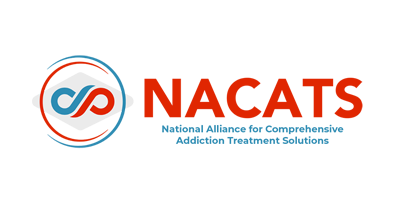
You once viewed yourself as a functioning citizen living in East Tennessee. You were paying bills on time. You were providing your family with great experiences. The only problem is that you use heroin. You’ve tried to hide it from those you love, but it is starting to get more difficult. It may have started as a way to manage pain, or maybe you tried it at a party you went to when you were younger, but now you can’t stop using it.
You would do anything, including breaking the law, to get heroin. You would risk everything you have for heroin – including your family. When you’ve tried to stop using it, you always return to it. It’s easy to get ahold of, plus you don’t think the family ever misses the money it costs. However, one day your youngest walks in on you injecting heroin into your veins. Their eyes meet yours before you tell them, “Not now.” You wonder whether they know what you are doing. How can you tell if someone is on heroin?
At ReVIDA® Recovery, we’ve heard stories like this. Over 2,000 Tennesseans used heroin in 2020. That number is rising. In 2010, only 66 Tennesseans were on heroin. ReVIDA® Recovery wants to help you reclaim your life. If a relapse occurs or you need additional support, you will always be welcomed back.
Table of Contents
The Life of a Heroin User
Heroin is illegal. Sometimes it starts with peer pressure. An individual may have started with friends who never used substances like heroin, but it can take as little as one person to show them heroin at something like a party. Heroin rewards the brain with endorphins, encouraging it to take more.
Heroin becomes more important to someone who uses it than themselves, their family, and even their friends. They cannot control their use and might believe heroin controls their life. They might only think about heroin and nothing else. Someone who uses heroin might have difficulty focusing on work or cannot pay their bills on time. Maybe they constantly fight with their spouse or try to convince them that it isn’t bad.
The Causes and Risk Factors That Lead to Heroin Addiction
There is no one cause for heroin addiction. People of different backgrounds come across heroin for the first time in different ways. A heroin use disorder is even more environmental and social than it is genetic. Just because Dad used heroin doesn’t mean that his kid will. They might encounter heroin at a party or as the next step to manage their pain after a car accident. This is because heroin can create endorphins in the brain which make the person who uses heroin feel joy as they forget about any pain that they might be experiencing in their lives. Other risk factors for heroin addiction include:
- Trauma
- Depression
- Access to medical healthcare
- Family history
- Poverty
- Anxiety
- Access to mental healthcare
- Early exposure to heroin
- Culture influences
- Use of other opioids such as morphine
- Parental guidance
Heroin Addiction Statistics
In 2020, 20% of all opioid-related deaths in the United States involved heroin. In Tennessee for the same year, there were 331 heroin-related deaths. In East Tennessee, there were 45 heroin-related deaths in 2020. In 2021, the number dropped, but only slightly, marking 36 heroin-related deaths in East Tennessee compared to 167 heroin-related deaths in all of Tennessee.
The Dangers of Heroin Addiction
The biggest danger of heroin use is overdose. Heroin is not regulated, making it likely to be mixed with fentanyl. Fentanyl is 50-100 times stronger than heroin and also cheaper. This makes it an ideal substance for dealers to mix with heroin. It also increases your chances of overdosing because the combination of the two substances is far greater than if you would take them separately. Some symptoms of heroin use include:
- Pain-free
- Nausea
- Slowed breathing
- Sedation
- Depression
- Kidney disease
- Irregular menstruation
- Pneumonia
- Infections
Heroin Overdose and Withdrawal
A person can overdose on heroin by taking too much heroin or by taking heroin with another substance, knowingly or unknowingly. Some signs to look out for if you suspect someone overdosed on heroin include:
- Slowed or stopped breathing
- Pale face
- Blue lips
- Foaming at the mouth
- Rigid body
- Slow pulse
- Unconscious
If you encounter someone you suspect is experiencing a heroin overdose, seek medical help immediately and administer Narcan® (naloxone). Narcan® (naloxone) can be administered multiple times and will not hurt someone who has not taken heroin, and it can reverse the effects of an overdose. In Tennessee, you can obtain Narcan® (naloxone) with or without a prescription.
Stopping your use of heroin can be terrifying, but it is also the bravest and strongest thing you can do, especially under medical supervision. Trying to stop on your own isn’t considered safe. As you stop using heroin, you will experience some symptoms of heroin withdrawal within 6 to 12 hours after your last dose. These symptoms might last up to a week or longer depending on how much and how long you have taken heroin. These symptoms might include:
- High blood pressure
- Hot and cold flashes
- Cravings
- Irritability
- Stomach pain
- Unpredictable moods
- Fever
- Fatigue

Getting Treatment for Heroin Use Disorder at ReVIDA® Recovery
Knowing the symptoms of withdrawals can make it difficult to want to start recovery, but recovery is still possible. ReVIDA® Recovery offers Suboxone® (buprenorphine) which helps make withdrawal symptoms more manageable. While it does not cure your heroin use disorder, it will make it easier for you to participate in your recovery.
ReVIDA® Recovery also provides group therapy, allowing patients to learn how to relate to like-minded individuals as they hold each other accountable. These typically meet every week for 1 to 2 hours. In addition to group therapy, we provide cognitive behavioral therapy (CBT). This is a traditional talk therapy where you will learn how to change your thought patterns as you learn healthy coping skills that will allow you to be successful in your recovery.
Here at ReVIDA® Recovery in Tennessee, we know you can reclaim your life from heroin. We will help you through this process every step of the way, even after your time with us. If you need to come back, we will always welcome you. For additional information about our program to recover from heroin, call us at 423-631-0432.

FAQS
What is heroin?
Heroin is an illegal opioid that is not regulated. It looks like a white or brown powder or a black sticky substance. The black sticky substance is known as black tar. It can be smoked, injected, snorted, or sniffed. It is often mixed with other substances like fentanyl to decrease the cost of heroin. This also makes heroin stronger and more dangerous due to mixing two different substances and not knowing how much of each substance you take. This can lead to overdose. Some symptoms of heroin you might encounter include slowed breathing, kidney disease, depression, and infections. Some signs of an overdose might include stopped breathing, unconsciousness, and blue lips. If you encounter someone you think might have overdosed from heroin, administer Narcan® (naloxone) or seek medical help immediately.
Where does heroin come from?
Heroin comes from morphine which comes from opium poppy plants. These plants can be found in Columbia, Mexico, and South Asia.










